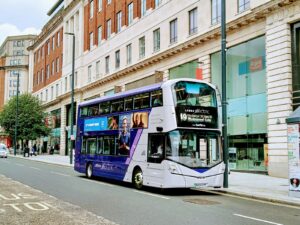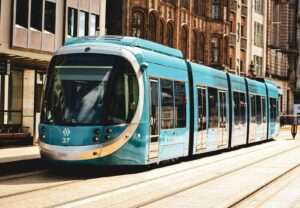A rail renewal project in Wales has broken new ground by achieving almost entirely diesel-free operation.
The joint initiative by Network Rail and Colas Rail looked to use solar lighting and battery technologies instead of diesel generators during a 14-day regeneration project in Llanwern, South Wales.
The project, centred around 72 continuous hours on site over the May bank holiday weekend, managed to operate 97% diesel-free, saving 6,000 litres of fuel and over 15 tonnes of CO2 emissions.
The outcome marks a significant milestone in the movement towards the rail industry being able to work off-grid carbon-free.
Ryan Ballinger, Colas Rail’s production manager, said: ‘A 97% diesel reduction at the first attempt is a great achievement.
‘We really want to get to that 100% fuel-free figure by the time of our next challenge, planned for a rail renewal project later in the summer.
‘There’s no doubt these technologies are going to be a complete gamechanger and we need to push on to get to a place where using this type of technology is just business as usual.’
Solar lighting and power generation technologies from the solar lighting manufacturer Prolectric were used across the 21-acre site, including access roads, the welfare cabin area, car parking and the track working area itself.
Over 70 staff were employed on site during the project, which lasted for 14 days including set-up time and core work.
Diesel generators have traditionally been the only reliable option for off-grid power during rail renewal work, despite the environmental impact of running them on often huge sites.
It is hoped that a movement within the rail industry towards using solar technologies will help reduce carbon emissions as well as smell, noise and air pollution.
Chris Williams, managing director of Prolectric, said: ‘This has been a very successful collaboration with Network Rail and Colas Rail Ltd.
‘The Llanwern initiative has proved that diesel-free operation is possible and was a vital learning experience for us, so we can move to eliminate the use of any diesel for lighting and welfare on future projects.’
Following the success of the project, Network Rail and Colas Rail now hope to achieve diesel-free operation as standard, adding in smaller tools such as disk saws and band saws.
Network Rail has previously announced its aims to reduce its non-traction energy consumption by almost 20% and its carbon emissions by 25% during Control Period 6, which started this year and is set to end in 2024.















